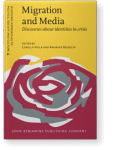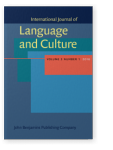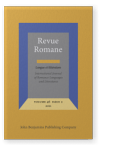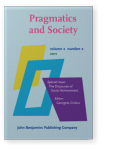Marie Veniard
List of John Benjamins publications for which Marie Veniard plays a role.
2019 Chapter 1. A comparative analysis of the keyword multicultural(ism) in French, British, German and Italian migration discourse Migration and Media: Discourses about identities in crisis, Viola, Lorella and Andreas Musolff (eds.), pp. 13–44 | Chapter
This chapter looks into discourses about migration in four European countries through the lens of cultural keywords (cf. Williams 1983; Bennett et al. 2005; Wierzbicka 1997); using Corpus Assisted Discourse Analysis, it compares the use of the keywords multicultural and multiculturalism. The study… read more
2016 Contrastive analysis of keywords in discourses: Intégration and Integration in French and German discourses about migration International Journal of Language and Culture 3:1, pp. 1–33 | Article
This article suggests a theoretical and methodological framework for a systematic contrastive discourse analysis across languages and discourse communities through keywords. This constitutes a lexical approach to discourse analysis which is considered to be particularly fruitful for comparative… read more
2011 Lexique et point de vue : l’angle syntagmatique: Analyse de guerre et de ses prépositions avec, contre et entre Revue Romane 46:2, pp. 177–201 | Article
This article tackles the question of point of view carried by lexicon. Whereas this subject is often considered from a paradigmatic perspective, this article proposes to describe it from a syntagmatic perspective. The word guerre (war) and the three syntagms la guerre (de X) avec Y, la guerre (de… read more
2011 Referring to parents in child protection reporting: A pragmatic-discursive study of a sensitive issue The Discourse of Social Achievement, Cislaru, Georgeta (ed.), pp. 301–327 | Article
This paper considers the terms used for designating parents in reports dealing with child protection, and explores the pragmatic impact of the reports’ extremely cautious choice of words. I test the hypothesis that, even if words are not argumentative in themselves, they can become argumentative in… read more



